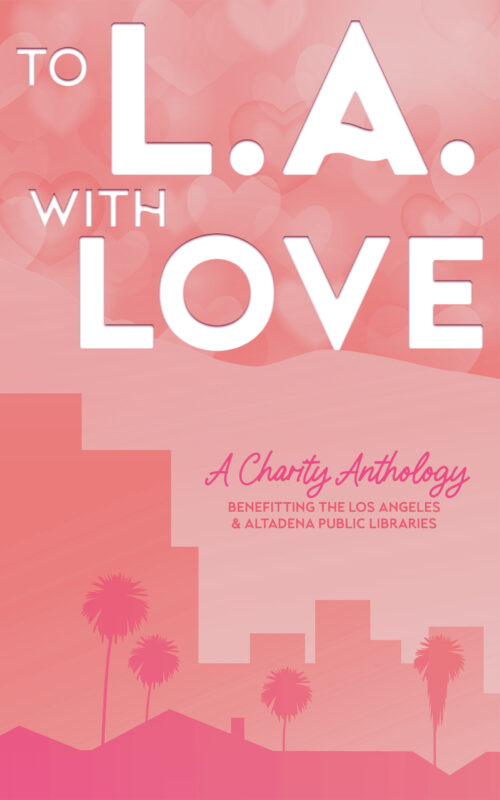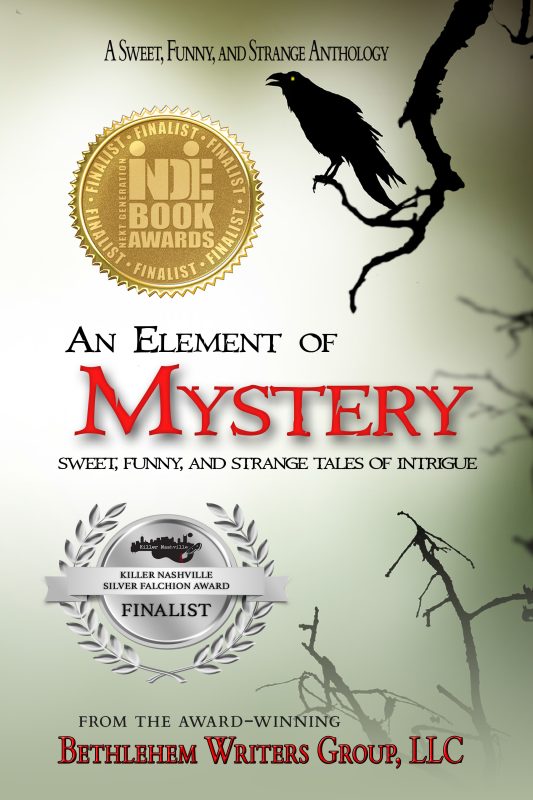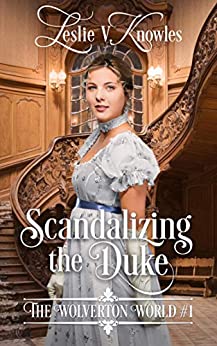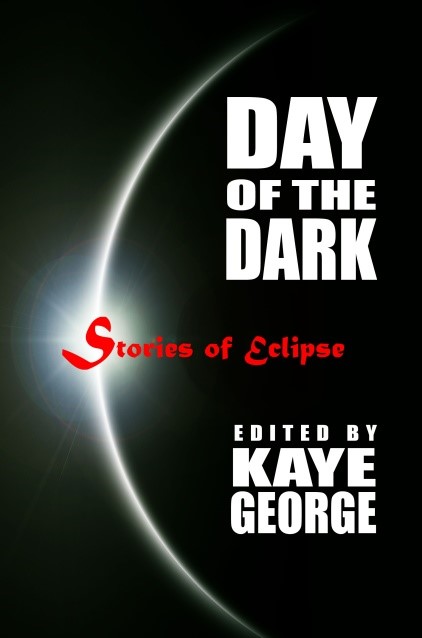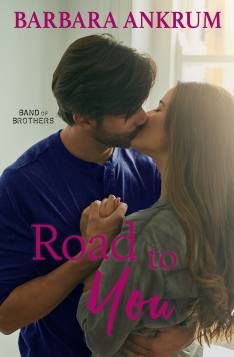Dear Extra Squeeze Team: Do I HAVE to Keep Writing in the Same Genre?
April 30, 2018 by The Extra Squeeze in category The Extra Squeeze by The Extra Squeeze Team tagged as The Extra Squeeze Team

Rebecca Forster
USA Today Bestselling author of 35 books, including the Witness series and the new Finn O’Brien series.
Switching genres is not a black and white issue but a function of the writer’s objective.
Writers by nature are a curious, opinionated and creative bunch. That means there is a tendency to write about whatever inspired them. Sadly this impulsive creativity wars with, and can undermine, the business of being creative.
So, if you are a writer whose primary concern is to explore all levels of your craft, writing in many different genres will be fulfilling. But if your primary concern were to use your writing to build a creative business, it would be wise to stick to one genre. Here is why:
1) Concentrating on one genre creates a dedicated fan base.
2) One genre allows the author to create a cohesive personal brand
3) Readers will know where to find you on the bookshelf whether it is in a brick and mortar or a digital bookstore.
4) Writers usually excel in one genre. To write in a completely different genre that is not as strong as your primary one only serves to dilute your brand.
This is not to say you can’t have diversity in your writing career. If you’re a thriller writer, it can take months to craft a 100,000-word novel. Writing shorter genre romantic suspense might satisfy your desire to write in a separate genre, allow you to bring out more books each year, and your output will still appeal to your fan base while growing a cross-over fan base in romantic suspense. Do you write fantasy? Then try magical realism. Do you write romance? Cross over to women’s fiction or sagas. Just remember to make your secondary market tangential to your primary.
New writers may want to try on different genres for size to find out where their strengths lie. Established authors who want to try a completely different genre may want to consider a pseudonym. Either way, the first thing to do is decide what your career objective is and then make a genre plan to meet it.
[tweetshare tweet=”Dear Extra Squeeze Team: Do I HAVE to keep writing in the same genre?” username=”@A_SliceofOrange”]

Jenny Jensen
Developmental editor who has worked for twenty plus years with new and established authors of both fiction and non-fiction, traditional and indie.
No, of course not. You can write in any genre you desire. The outcome of that would depend on how much weight you place on each side of art vs business of writing equation.
If you weigh in about equal between writing as your expressive art and the business of making that art pay (either recognition or income) you’re well aware of the importance of branding your work for a particular audience. You know the effort involved in creating an online author presence, beginning with a body of solid work, which is publicized and supported by blogs, reviews, interviews, twitter, newsletters, Face Book etc. It takes time and consistent work to build an author platform and a fan base. Your fans find you and stick with you because they want to read the genre you’re writing in, they expect to read that genre and because you are good enough at that genre to either be building, or have built, a solid following.
Traditional publishers shy away from letting an author branch out into a different genre. They don’t want to upset an established cash cow. In that respect the traditional marketing model is similar to the Indie model. Poor A. A. Milne — he really wanted to write murder mysteries (he published one: The Red House Mystery) but his publisher would never let him taint the image of Christopher and friends. There are major exceptions; J. K. Rowling and Anne Rice are two. Both of these fabulous authors had a huge, loyal fan base before they made the genre jump. When you write that well most of us will follow blindly! I know I do and I’ve not been disappointed.
If you know you have great stories in you that cross genre typing you can always publish one genre under a nom de plume. That’s very common. Eventually a well-known writer gets outed as the person behind the false moniker but by that time she’s hooked a whole new audience so everyone is happy.
Writing in different genres is, I think, an excellent way to exercise and grow your writing skills. Just the difference in voice between the lady of an Edwardian romance and the female warrior of a dungeons and dragons fantasy would require a major stretch of skills. Add plot mechanics, atmosphere and secondary characters and you’re running a writing marathon. That’s the kind of practice that really sharpens a writer’s eye. I’d never discourage that.
The important thing to remember if you want to successfully write in more than one genre is to be sure you can excel in one of them first.
Robin Blakely
PR/Business Development coach for writers and artists; CEO, Creative Center of America; member, Forbes Coaches Council.
No, you don’t have to keep writing in the same genre. But, why would you leave?
Over the years, authors have privately shared many reasons for making big shifts in their writing careers.
- Sometimes you start out in the wrong place, and your efforts just aren’t working.
- Sometimes you change so much as you grow professionally that your story interests carry you to a new genre.
- Sometimes the original genre changes and you no longer feel at home creating the types of stories you once enjoyed.
As a writer, you are a talent-driven brand, and talent-driven brands are fueled by passion. So, it always makes sense to follow your passion. However, passion can sometimes be mistaken for a whim. So, think hard about the shift you are contemplating. Prepare for what could be ahead.
From a PR, Marketing, and Sales perspective think about desired outcomes before you decide to leave your readers and move.
- Consider the risks and the benefits to the business side of your creativity.
- Take a critical look at what you are building—there is more than your written work at stake.
- In addition to the books you are creating, you are also steadily building a community of readers. Jumping ship to another genre will be like moving from your beloved neighborhood to a new community. The readers you got to know over here may not go with you over there when you leave. They may like you enough to come visit, but it is likely that they won’t come by often.
PR-wise, you are starting over when you begin to write in a new genre. Even if you keep writing for your original genre, you will still be starting over reader-wise with your new work. Still, just like in the real world with an apartment or a starter home, a simple move can be just what you needed to live happily ever after.
H.O. Charles
Cover designer and author of the fantasy series, The Fireblade Array
When you find out, please let me know because I am about to publish a(n) historical fiction novel (after years of writing in fantasy!).
There’s no reason why an author wouldn’t have the *ability* to write in another genre, as long as the enthusiasm and skill for it is there. The main thing that I’d be concerned about is audience. The audience you build up whilst writing for one genre may not enjoy your new genre, and it may be that only die-hard fans will want to make the crossing, so to speak. And if they did, the resulting reviews and sales could go either way. Essentially you’d be back at square 1, or perhaps square 1.43, in building a readership for your books.
I wonder if JK Rowling’s endeavour with crime fiction (Robert Galbraith) might serve as a useful source of information. The books were released under a different pseudonym (just as Nora Roberts’ publisher insisted), although this was at JK’s behest since she wanted to “go back to the beginning of a writing career in this new genre, to work without hype or expectation and to receive totally unvarnished feedback.”
On one hand, she received positive reviews as a ‘debut author’, but only sold 1,500 copies in the three months before her true identity was revealed (I say only – that’s not bad going for many authors out there!).
When it was revealed that Galbraith was Rowling, sales shot through the roof, but still only half as many people have written reviews for those books as have done so for the Potter series. From that, I would suggest that if your performance in your first genre is good, then it can only help build a readership for your new genre, but don’t expect sales to match those of your first genre. However, if your foray into your new genre is flawed for any reason, I suppose *potentially* it could negatively affect your existing reputation.
Without having published my non-fantasy book yet, I say go for it. It’s a great way to learn and explore new techniques, approaches, worlds and really grow as an author. I’m really enjoying doing something different.

Ever wonder what industry professionals think about the issues that can really impact our careers? Each month The Extra Squeeze features a fresh topic related to books and publishing.
Amazon mover and shaker Rebecca Forster and her handpicked team of book professionals offer frank responses from the POV of each of their specialties — Writing, Editing, PR/Biz Development, and Cover Design.
Dear Extra Squeeze Team: Can I Publish with Amazon and Submit That Same Book to a Traditional Publisher?
January 31, 2018 by The Extra Squeeze in category The Extra Squeeze by The Extra Squeeze Team tagged as Hybrid Publishing, Indie vs. Traditional, publishing, The Extra Squeeze Team
Dear Extra Squeeze Team: I asked a published writer if one could publish with Amazon and submit that same book to a traditional publisher.
She said, “Yes, and if your book is accepted for publication, you then take it off Amazon.”
I’ve wondered if this is true. Can an Indie writer do this?
[tweetshare tweet=”Dear Extra Squeeze Team: Can I Publish with Amazon and Submit That Same Book to a Traditional Publisher?” username=”A_SliceofOrange”]

Rebecca Forster
USA Today Bestselling author of 35 books, including the Witness series and the new Finn O’Brien series.
Love the question. Here’s the answer. An indie author can do anything she darn well pleases.
Now ask the really important question: should she do it?
When I first started writing, I was rather impatient. Against the ‘rules’ I submitted to editors and agents simultaneously. My thinking was this: if an editor replied an agent would love to take me on because the hard work was done and if an agent replied first they would be happy to follow up with an editor who already had the manuscript. It all worked out fine. I sold my first book without an agent, got picked up by an agent because I had a deal, and life went on without a backlash or wrist slap. The strategy was mutually agreeable because the same book was being pitched and would benefit everyone on the food chain. Fast forward. Traditional publishers are now trolling the Internet for books that are doing well, they are signing hybrid deals and they are more open to creative publishing than ever before. However, if you break it down it looks like this.
1) A hybrid deal is not made for the same book but for unique material for each platform (i.e. one series for the traditional publisher and another for indie publication).
2) When a publisher picks up a successful digital book, the rights then are sold to the publisher and the author is no longer both an indie and traditional author. The indie books catch a traditional publisher’s eye earn their way into those deals by having great reviews and sales.
Therefore, if you have published your book on Amazon and submitted it to a traditional house you have put yourself in a risky position. The first thing an editor will do is look to see how many reviews you have and what the sales rank of the book is. If you have few reviews – and worse, bad reviews – and a sales rank in the high six figures your query will go into the round file.
My advice would be to determine your goals. Do you want to gain author cred by being published traditionally, or do you want creative freedom and a good chance of making decent money off your writing? Decide that before you actually do anything.
So, can you simultaneously publish and pitch? Sure you can. Would I do it? Nope. Traditional publishers have too much information at their fingertips. If you publish that book and the results are lackluster there is no incentive to pick you up.
I say set goals, create content appropriate for each opportunity and follow a focused plan to get the notice you want.
Robin Blakely
PR/Business Development coach for writers and artists; CEO, Creative Center of America; member, Forbes Coaches Council.
The published author has correctly answered your question, but only from a literal standpoint.
The issue is more complicated than it appears. The published author answered a simple question simply… without fully explaining the deeper details that need to be understood. You probably wondered if it could possibly be true because it seems too easy. Your intuition is correct that there is more to it, and it is good that you are questioning the information to find out more.
From my perspective, the real rabbit hole in this scenario is about the transparent status of the book BEFORE you offer to sell it to the publisher, not the issue of what to do with the work AFTER a publisher has agreed to purchase it. The publisher, the buyer of your created content, needs to be fully aware of your product’s real status in the marketplace when considering your work. It’s kind of like the notion that you have the right to know if the shiny car you are buying is new, used, or something in-between, like never driven, but hail-damaged. If your work is or has been for sale on Amazon, that is information that the traditional publisher has the right to know when the work is being considered by that publishing house.
There is no harm, no foul in asking what is required here or what is possible. Publishing is a mysterious business sometimes and it is hard to know what the rules are. In any business world the best practice is to shine a bright light on whatever seems unclear. I think that the question you really may be asking—or should be asking—is this: “If I decide to submit my book to a traditional publisher, do I have to tell the publisher that the book is already available online under my own name, or under a pen name, or under a different title?” The answer is “Yes.”

Jenny Jensen
Developmental editor who has worked for twenty plus years with new and established authors of both fiction and non-fiction, traditional and indie.
There is one fixed rule about today’s publishing industry: the rules are always changing. You can count on that. Not that many years ago an author who submitted their work to two different publishers at the same time had committed an unredeemable faux pas. Simultaneous submission, or double submission, was enough to get an author blackballed. This query sounds a bit like making a simultaneous submission, but the rules have changed, the playing field is radically different.
Publishers no longer hold all the power. Anyone can offer their work on Amazon, Nook, Smashwords. If your book has a compelling premise, is well written, well edited, well formatted, well designed, and well marketed, then you have a product that could catch the eye of a traditional publisher. It’s happened before.
Amanda Hocking, Louise Voss, J. Carson Black are examples. The strength of their writing propelled their independently published books to No. 1 sellers, which caught the attention of traditional publishers who then offered these writers deals to publish future work. In the case of Louise Voss her successful indie book Catch Your Death was also reprinted and redistributed traditionally. That’s the only example I know of where a traditional publisher re-released an indie success. You can look at it as Voss’s indie serving as an audition that won her a traditional book contract.
If an author publishes their own work and then submits that same work to a Random House type imprint I don’t see where that is against the rules that are ever changing. I would suggest that they be up front about the indie offer. And it would be smart to hold off seeking a traditional publisher until the indie book has garnered a sales record and favorable reviews. A measure of success with an indie book not only showcases the writer’s talents but also their marketability.
H.O. Charles
Cover designer and author of the fantasy series, The Fireblade Array
Yes, you can submit your book to a publisher even if it is already on sale on Amazon. It is up to you how you negotiate the terms of the deal they offer (if they offer one). Some writers keep their existing back catalogue self-published, but only give the publisher the rights to sell later books. I understand that is what fantasy author Daniel Dalglish did with Orbit. There is another thing to consider, however, and that is your book may appear less attractive to a publisher if it has already been published, but either doesn’t sell well/is not well-received, or is already too widely distributed and they feel they cannot make money from it. If you’re someone like E.L. James, however, that’s not as much of a problem!
[tweetshare tweet=”A Question about Writing or Publishing? Ask the Extra Squeeze Team! https://www.asliceoforange.net/contact/the-extra-squeeze/” username=”A_Slice of Orange”]
Do you have a writing or publishing question?
Send them to the Extra Squeeze Team!
https://www.asliceoforange.net/contact/the-extra-squeeze/
Ever wonder what industry professionals think about the issues that can really impact our careers? Each month The Extra Squeeze features a fresh topic related to books and publishing.
Amazon mover and shaker Rebecca Forster and her handpicked team of book professionals offer frank responses from the POV of each of their specialties — Writing, Editing, PR/Biz Development, and Cover Design.

What Does The Extra Squeeze Team Think About SELF-e?
November 30, 2017 by The Extra Squeeze in category The Extra Squeeze by The Extra Squeeze Team tagged as Library Journal, Questions, Selfe-e, The Extra Squeeze Team
Question for the Extra Squeeze Team: I started to enroll to SELF-e to get my Ebooks into libraries. When I started to fill out the Agreement Form, I wondered if it’s a good idea. They want the right to copy, change, etc. material from the book. In lawyer’s terms, it states about preventing distribution of the books to libraries. I thought the idea of SELF-e was to get the Ebooks into libraries. Should I bow out or continue?
The article on SELF-e is in April 2017 Romantic Writers Report on page 18. It sounds good in the report. It says you can get out of it after you’re in SELF-e and says to write to the following address in the Agreement but then gives no address.
So, what does the Extra Squeeze Team think about SELF-e?

Rebecca Forster
USA Today Bestselling author of 35 books, including the Witness series and the new Finn O’Brien series.
I knew very little about Self-e until this question arose and now I’m very curious about it. I will probably submit some of my books.
I actually contacted my distributor because I was under the impression that OverDrive took care of distribution to libraries. I was advised that it is very difficult to find indie books on OverDrive (who knew) and that my best bet would be to visit all the libraries in a ten mile radius of my home and introduce myself.
I think a Self-e submission sounds a lot more efficient. So, while I can’t recommend it because I haven’t used the service, I am personally going to be looking into it because libraries remain an important fact of a writer’s life.

Robin Blakely
PR/Business Development coach for writers and artists; CEO, Creative Center of America; member, Forbes Coaches Council.
I think that the most important thing about Self-e to understand first is less about Self-e and more about your goals and aspirations as a business professional in the writing community.
- What financial goals have you set for yourself?
- How many books do you plan to sell this year, this month, this week?
- Is your book a product or is your book a marketing tool for you, the brand?
- How important is it to your strategic goals to gain access to the target market known as library patrons?
Self-e is one way to gain access to library patrons. This is an innovative way to elevate your brand through the library. Your particular strategy is what matters here. When you know what you want to do, you will know what will work for you. I love libraries and I am a big fan of the innovative services they offer.
However, I do not have any clients who have elected to used Self-e….yet.
[tweetshare tweet=”What are your goals and aspirations as a business professional in the writing community?” username=”A_SliceofOrange”]

H.O. Charles
Cover designer and author of the fantasy series, The Fireblade Array
I’ll preface this by saying it’s a bit unfair for me to comment, since I haven’t used Self-e and therefore cannot properly measure the impact of exposure on a platform like that (which seems to be their selling point, since they take all income for themselves).
What I CAN say is that library sales have never figured that prominently in the years I’ve been selling my books online. Almost all my sales occur via B&N, Apple and Amazon.
I distribute through Smashwords to the first two, and SW give me a 45% cut after sales to Overdrive, but the proportion of sales (in terms of units distributed) I get from libraries overall is teeny tiny compared to the major book retailers.
I’m happy to continue distributing to library services, as subscription model libraries may one day be the norm for readers, but until they occupy a larger block in my annual sales reports, I see no reason to feature the rest of my work for free (my first book is already free!) with something like Self-e .

Jenny Jensen
Developmental editor who has worked for twenty plus years with new and established authors of both fiction and non-fiction, traditional and indie.
My radically unqualified legal opinion: I don’t see anything in the agreement document of self-eLibraryJournal.com that signs over the right to change any material submitted. What I do see is that by agreeing to their terms the author grants self-eLibraryServices the royalty-free right to distribute your content to libraries, so you won’t be paid even if 500 libraries accept your book for their e-book list. I do see that by agreeing you grant them the right to copy bits to include an abstract, or description of the content. And they do provide an address you can write to, and your work will be taken off the system within 180 days of receipt.
Library Journal ATTN: LEGAL DEPT
7858 Industrial Parkway
Plain City, OH 43064
Library Journal is the leading publication in the library market and their e-book service – pretty new, it was beta tested in 2015 – provides a fantastic opportunity for indie writers. This is a curated program, so your work has to pass the smell test. But it provides a grand platform for an indie writer to grow their audience and fan base. How many authors have you first met at the library and then sought their work in the bookstore?
If your work meets the quality standards of Library Journal, then it receives distribution among participating libraries nationwide. If not, you have options:
Option 1 – hire a good developmental editor to bring the work to its most fragrant state and resubmit the improved version. (There is a reason the work didn’t pass muster, and you’ll do yourself a favor to find and correct that.)
Option 2 – use self -e.libraryjournal’s ability to put your book in your state’s participating library system which probably reaches a wide local audience. (Be mindful here of why Library Journal did not accept it for wider distribution.) It feels like a win-win to me.
[tweetshare tweet=”But Self-e provides a grand platform for an indie writer to grow their audience and fan base.” username=”A_SliceofOrange”]
Libraries pay for every book that isn’t a donation. LibraryJournal.com does not appear to compensate authors who have agreed to allow them to act as distributor. There may be no monetary profit, but the reward is exposure, and every indie writer knows that discoverability is huge – how else can you build a readership? I, for one, am so glad to see librarians pick up the gauntlet of the digital book world and begin to offer this invaluable, public service to the indie writing world. Library Journal is not the only forum. There are several sites that work with indie authors to distribute their work to libraries: ebooksareforever and Overdrive.
[tweetshare tweet=”Wonder what writing professionals think about issues that really impact your career? ” username=”A_SliceofOrange”]
Each month The Extra Squeeze features a fresh topic related to books and publishing.
Amazon mover and shaker Rebecca Forster and her handpicked team of book professionals offer frank responses from the POV of each of their specialties — Writing, Editing, PR/Biz Development, and Cover Design.
Send your questions to the Extra Squeeze Team
Send Us Your Questions
July 14, 2017 by marianne h donley in category The Extra Squeeze by The Extra Squeeze Team tagged as Questions, The Extra Squeeze Team
The Extra Squeeze Team Wants Your Questions

Ever wonder what industry professionals think about the issues that can really impact our careers? Each month The Extra Squeeze features a fresh topic related to books and publishing.
Amazon mover and shaker Rebecca Forster and her handpicked team of book professionals offer frank responses from the POV of each of their specialties — Writing, Editing, PR/Biz Development, and Cover Design.
Send The Extra Squeeze Team your Questions.
Your questions and their answers will be posted on the last day of each month.
If you have a topic or question for the Extra Squeeze Team, contact the Extra Squeeze online producer Marianne Donley by using the form below.
The Extra Squeeze Team

USA Today Bestselling author of 35 books, including the Witness series and the new Finn O’Brien series.
Developmental editor who has worked for twenty plus years with new and established authors of both fiction and non-fiction, traditional and indie.


Cover designer and author of the fantasy series, The Fireblade Array
PR/Business Development coach for writers and artists; CEO, Creative Center of America; member, Forbes Coaches Council.


